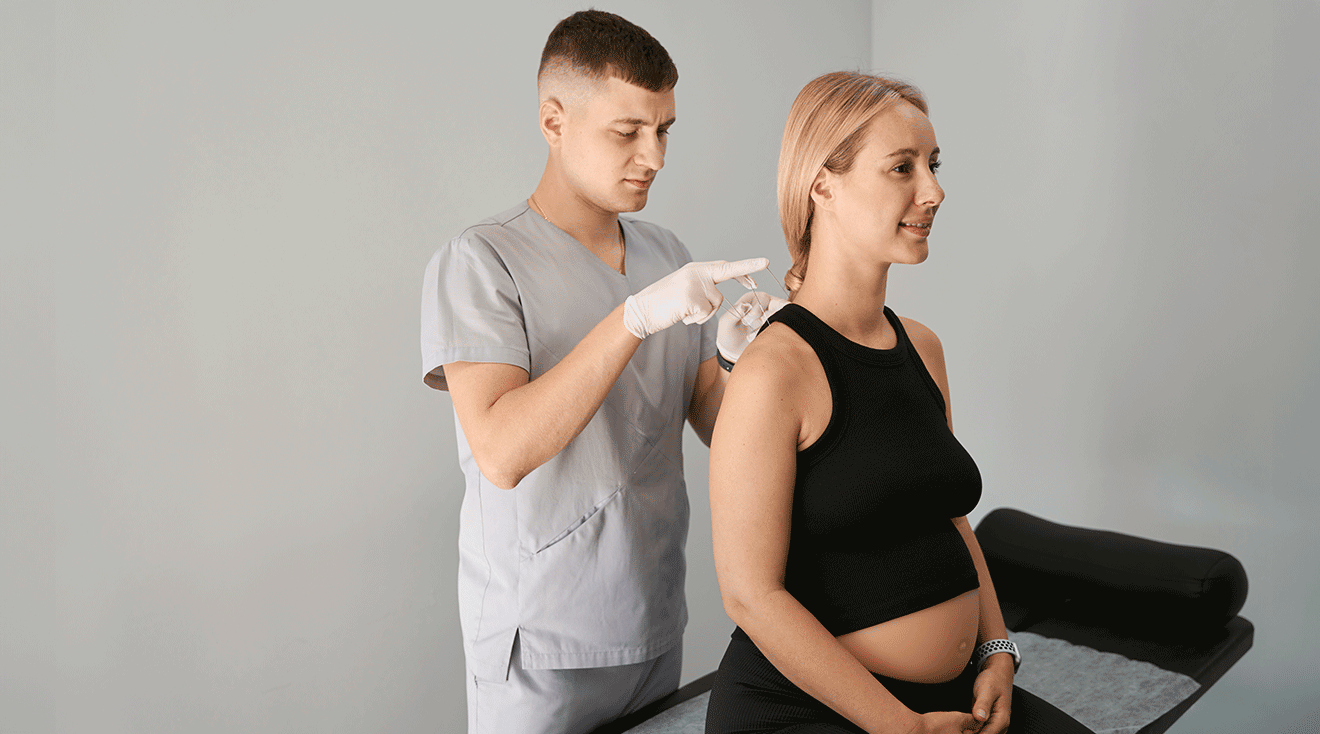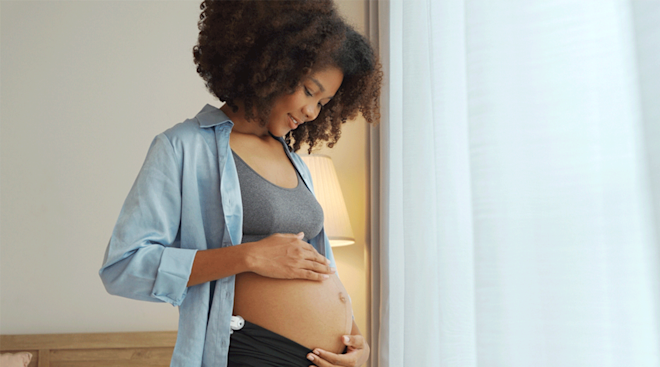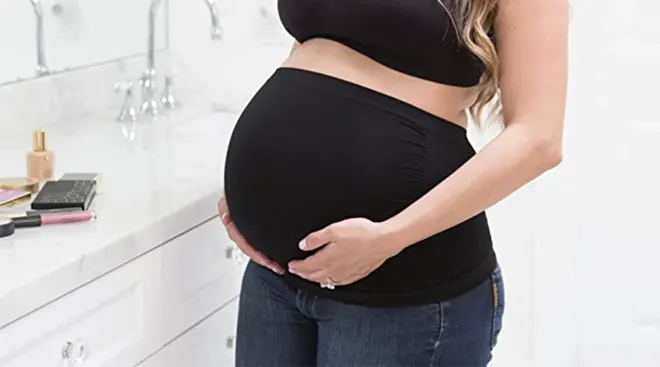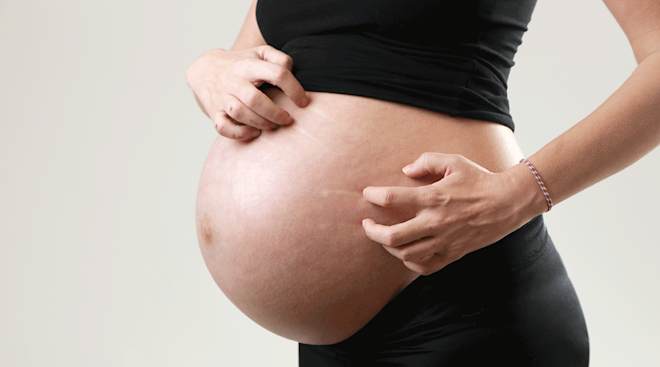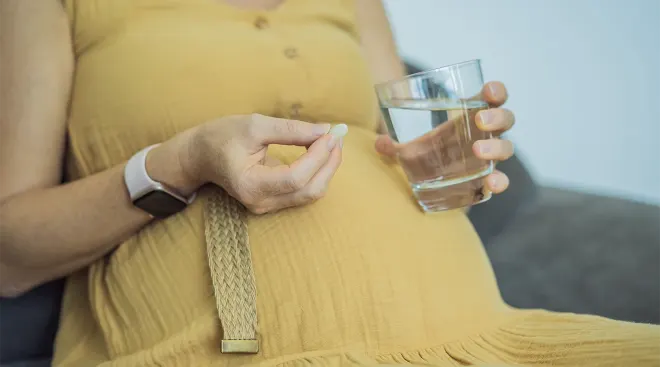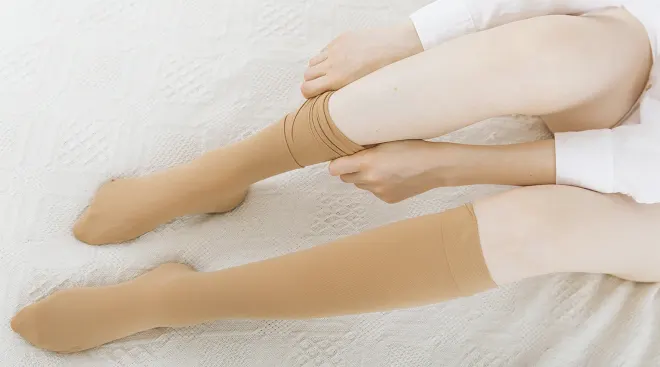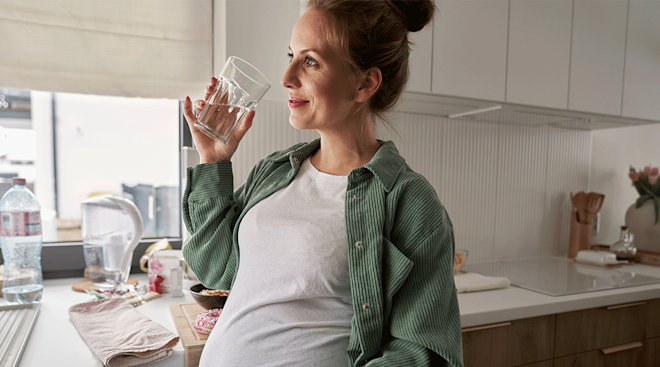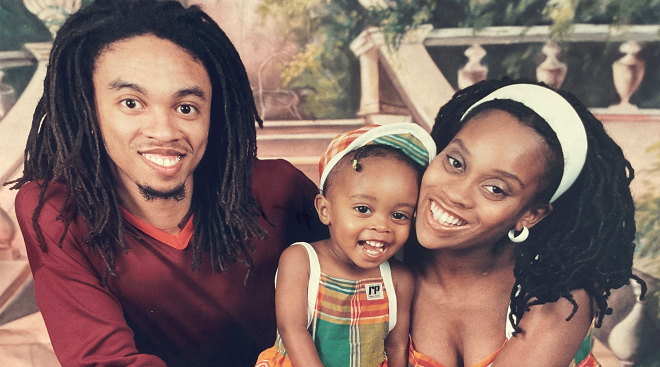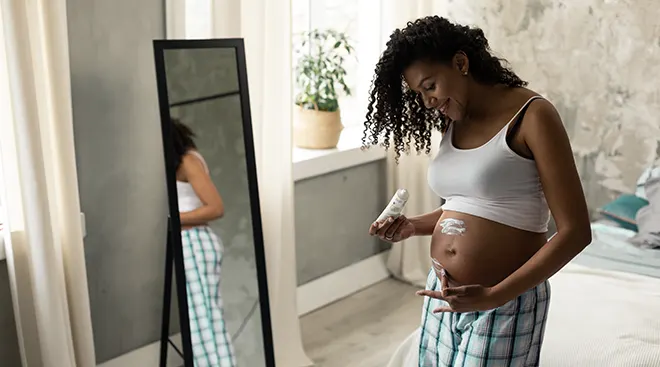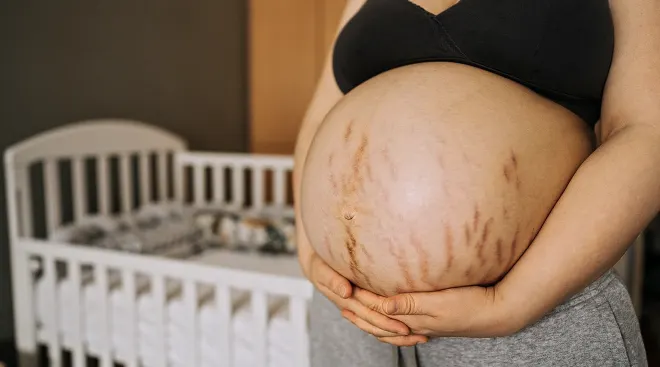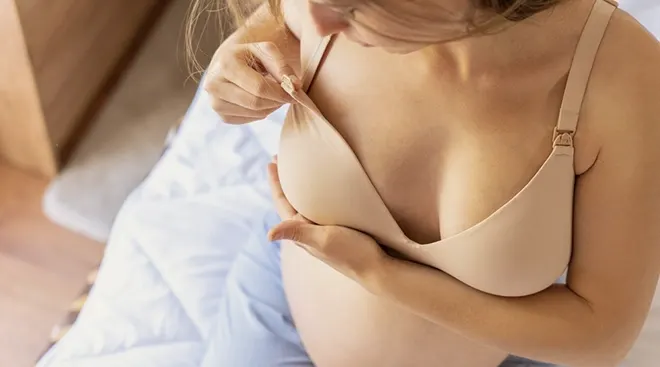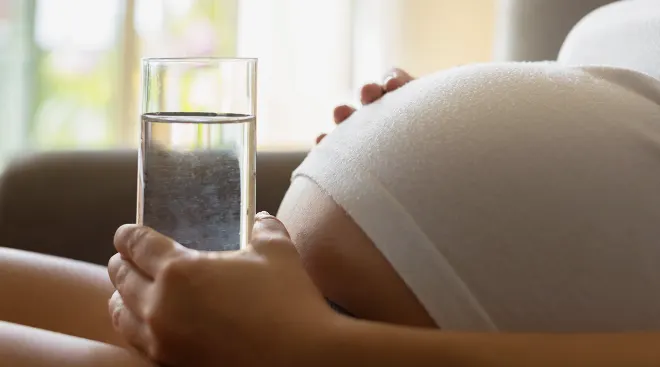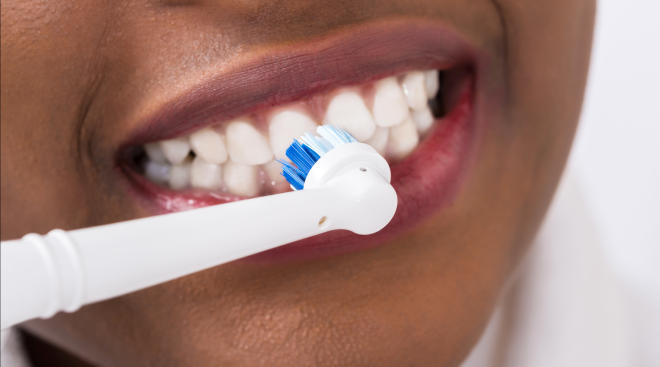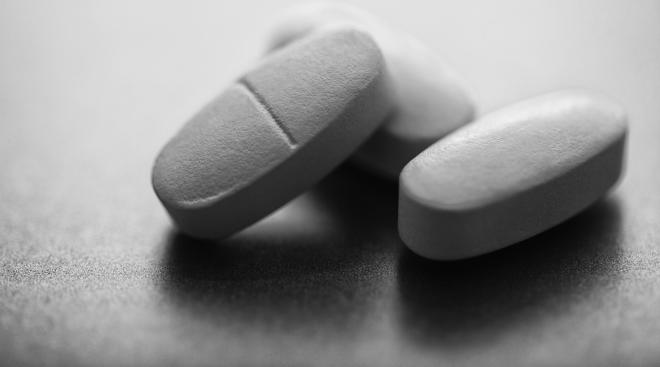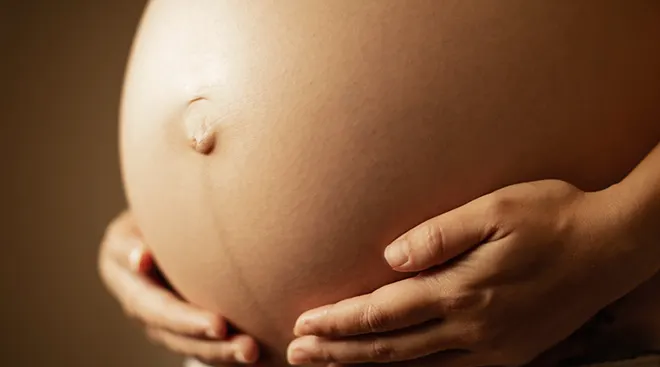
Is Acupuncture Safe During Pregnancy?
Pregnancy is an exciting time—but it can also come with a slew of unpleasant symptoms, from weird aches and pains to morning sickness. Whether you’re looking to avoid taking medicine during pregnancy or just want to try a new treatment, you might have considered acupuncture while pregnant.
But is acupuncture safe during pregnancy? Healthcare providers say it generally is, but there are a few things to keep in mind before booking your appointment. Ahead, read about the benefits and risks of acupuncture during pregnancy—and get some tips on how to prepare for your first appointment.
“Acupuncture is a technique in which practitioners insert fine needles into the skin to address health problems,” explains Edward Hui, MD, an integrative medicine provider at UCLA Health.
The needles are inserted strategically during this traditional Chinese medicine technique. “The points of application correspond to particular organs or functions, based on the philosophy that a life energy referred to as ‘qi’ runs through those points,” says Jonathan Schaffir, MD, an ob-gyn at The Ohio State University Wexner Medical Center. “Some therapies also involve acupressure, where, instead of a needle, pressure is applied to these points.”
The American College of Obstetricians and Gynecologists (ACOG) says that acupuncture is considered safe to treat certain health issues that may come up during pregnancy, including morning sickness and stress, and that it could help to reduce labor pain.
“Acupuncture is generally considered safe during pregnancy when performed by a trained and licensed practitioner,” says Meleen Chuang, MD, chief of service in Obstetrics and Gynecology at NYU Langone Hospital Brooklyn. “However, it’s important to consult with your healthcare provider before starting any new treatments during pregnancy.”
Schaffir agrees. “As long as the needles are appropriately sterilized and applied properly, there’s not known to be any significant risk to pregnancy,” he says.
There are a great deal of potential benefits of getting acupuncture while pregnant. According to experts, they include:
- Alleviating nausea and vomiting. “Acupuncture may help reduce morning sickness symptoms,” Chuang says.
- Relieving pain and discomfort. Acupuncture can help with back pain, pelvic pain and other pregnancy-related discomforts, says Chuang.
- Reducing stress and anxiety. “Acupuncture helps relax the nervous system and promote the release of endorphins, leading you to feel relaxed and at ease after each treatment,” says Natalia Morrison, AP, LAc, an acupuncture physician with One Tribe, a Miami-based integrative wellness and educational center dedicated to supporting women on their journey through pregnancy and early parenthood.
- Promoting better sleep. Some pregnant women find that acupuncture helps improve their sleep quality, says Chuang.
Christine Greves, MD, FACOG, an ob-gyn at the Winnie Palmer Hospital for Women & Babies in Orlando, adds that sometimes patients try acupuncture during pregnancy when they don’t want to take medication, or when medication doesn’t work.
Acupuncture can help with postpartum symptoms too. “During your fourth trimester, after the welcoming of baby, acupuncture helps to support the rebalancing of hormones, can help with breast milk production, fatigue, anxiety and even sadness,” says Morrison.
When it comes to the potential risks of acupuncture while pregnant, it’s important to keep in mind the area where your acupuncturist places the needles. Certain spots are considered off-limits before 37 weeks of pregnancy, Hui says.
If you have an immune system disorder or are immunocompromised, there may be a risk of infection if you have acupuncture, Chuang says. Ultimately, it’s best to consult with your doctor before trying acupuncture.
Acupuncture pressure points to avoid during pregnancy
“According to traditional Chinese medical theory, there are certain ‘acupoints’ that shouldn’t be stimulated during pregnancy, especially as some can induce contractions or labor,” Hui says. At the very least, research says, they shouldn’t be stimulated before 37 weeks of pregnancy. They include:
- Spleen 6
- Large intestine 4
- Urinary bladder 60, 67
- Gallbladder 21
- Lung 7
- Conception vessel 3-7 (in the lower abdomen)
- Governing vessel 27-34 (between the coccyx bone and the anus)
“These acupuncture points are usually associated with stimulating uterine contractions,” adds Gudrun Snyder, DAc, MSAc, LAc, an acupuncturist and CEO and founder of Moon Rabbit Acupuncture in Chicago. “So we avoid them throughout most of the pregnancy, but then when you’re ready they [can] work wonderfully to help move along labor and delivery.”
First of all, it’s important to choose an acupuncturist who’s experienced in treating pregnant women, says Morrison. Also, make sure to tell your acupuncturist about your health history and any symptoms you’re currently experiencing so they can “create a unique and tailored acupuncture treatment just for you,” she says. Lastly, make sure to wear comfortable, loose-fitting clothing, and drink plenty of water.
Frequently Asked Questions
Can acupuncture help you conceive?
Hui and Chuang both say that acupuncture could potentially help fertility by reducing stress. “Acupuncture can potentially be helpful in improving fertility, especially for women with certain health conditions including polycystic ovarian syndrome and ovulation problems,” says Hui. “Even if acupuncture [is] only able to relieve stress, manage anxiety or improve sleep, this would certainly be helpful for a woman experiencing infertility.” Snyder adds that she often sees patients who are trying to conceive.
Is acupressure safe for pregnancy?
Acupressure is generally considered safe for pregnancy. But as with acupuncture, there are areas you’ll need to avoid. “If acupressure is used, it may involve strong pressure on underlying tissue,” Schaffir says. “Any point on the abdomen should be avoided.”
Is moxibustion safe during pregnancy?
Moxibustion is the practice of burning dried mugwort near specific acupuncture points, says Chuang. She says that it’s generally considered safe during pregnancy when performed by a trained practitioner, but adds that you should make sure to consult with your healthcare provider before trying moxibustion or any other new treatments during pregnancy. And keep in mind: “The smoke associated from burning may cause asthma attacks or respiratory problems for those sensitive,” Chuang says.
“It’s [an] incredibly safe, and even soothing, treatment,” says Snyder, adding that one study has found it to be clinically effective in turning breech babies as well. “Ideally, I would start seeing you around 34 weeks to get your baby in the correct position,” she says.
Can acupuncture induce labor?
Acupuncture can potentially help induce labor, but this should only be done under the supervision of a qualified healthcare provider, Chuang says. “Specific acupuncture points can be stimulated to promote contractions, but it’s important to ensure that the timing is appropriate and that the procedure is performed by an experienced practitioner,” she says. She adds that there are many other techniques to help stimulate labor, and that it’s important to find an acupuncturist who specializes in pregnancy and women’s health.
Please note: The Bump and the materials and information it contains are not intended to, and do not constitute, medical or other health advice or diagnosis and should not be used as such. You should always consult with a qualified physician or health professional about your specific circumstances.
Plus, more from The Bump:
Meleen Chuang, MD, is the chief of service in Obstetrics and Gynecology at NYU Langone Hospital Brooklyn and a clinical associate professor of obstetrics and gynecology at the NYU Grossman School of Medicine. She earned her medical degree from Stony Brook University School of Medicine in Stony Brook, New York.
Christine Greves, MD, FACOG, is an ob-gyn at the Winnie Palmer Hospital for Women & Babies in Orlando. She received her medical degree from the University of South Florida College of Medicine.
Edward Hui, MD, is an integrative medicine provider at UCLA Health. He earned his medical degree from the David Geffen School of Medicine at the University of California, Los Angeles.
Natalia Morrison, AP, LAc, is an acupuncture physician with One Tribe, a Miami-based integrative wellness and educational center dedicated to supporting women on their journey through pregnancy and early parenthood. She holds a master’s degree in Acupuncture and Chinese Medicine, a bachelor’s degree in health science from the Atlantic Institute of Oriental Medicine and is Certified in Tantra Hatha Yoga.
Jonathan Schaffir, MD, is an ob-gyn at The Ohio State University Wexner Medical Center. He earned his medical degree from the Brown University Program in Medicine.
Gudrun Snyder, DAc, MSAc, LAc, is an acupuncturist and CEO and founder of Moon Rabbit Acupuncture in Chicago. She completed her East Asian medical training at the Pacific College of Oriental Medicine, Chicago. She’s also a certified Medical Qigong Practitioner.
American College of Obstetricians and Gynecologists, Complementary and Integrative Approaches in Obstetrics and Gynecology, October 2021
Acupuncture in Medicine, The Safety of Obstetric Acupuncture: Forbidden Points Revisited, October 2015
Journal of Pain and Symptom Management, The Efficacy of Acupressure for Symptom Management: A Systematic Review, October 2011
The Journal of Maternal-Fetal & Neonatal Medicine, Acupuncture Plus Moxibustion to Resolve Breech Presentation: A Randomized Controlled Study, May 2010
Learn how we ensure the accuracy of our content through our editorial and medical review process.
Navigate forward to interact with the calendar and select a date. Press the question mark key to get the keyboard shortcuts for changing dates.
































